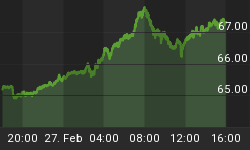If one were asked to describe the major global economic changes that have unfolded since the financial crisis began, a good starting place would be the massive shift of debt from the private to the public sector. Attempting to arrest a deepening crisis, governments all around the world have bailed out businesses and companies by transferring bad debts to the public books. Although these moves have provided some current stability (after all, governments are much less likely to default), the long-term consequences may be dire.
Two of the world's largest economies, the EU ($16 trillion) and the US ($14 trillion), have become the leading practitioners of private-to-public debt shifting. The US has assumed the debts of banks, insurers, mortgage holders, and even entire industrial sectors. The European Union has done the same for entire states. The resulting public debt levels are, predictably, placing strains on both the dollar and the euro.
Worse still, the bailouts have created a spirit of apathy toward debt accumulation. Western governments have embarked on a debt binge for the ages. Already, the credit ratings of the United States and some of the EU's core countries, such as France and the UK, are being questioned.
While this socialization of private debt has created deep citizen resentment, it remains to be seen whether political pressure is enough to hold back the tide. In the US, the forces of fiscal restraint appear to have the upper hand at present; but, this late in the game, it is far from certain that the newly elected fiscal hawks will be able to avert civil unrest and debt default.
It is worth noting that the debt shift has offered some near-term benefits. Relieved of repayment anxiety, many companies have posted very promising earnings reports in recent months (one needs to only glance at Detroit). Despite continued demand weakness, these companies have worked hard to improve their balance sheets and raise operating margins. The resulting rally in share prices has given rise to a belief that recovery is at hand.
However, despite buoyant share prices, unemployment continues at dangerously high levels, depressing tax revenues and leading to much greater entitlement spending. This has made public debt levels rise even faster.
Total world direct sovereign debt, excluding guarantees and unfunded medical and pension obligations, is some $41.6 trillion dollars. When the $2.9 trillion owed by global municipalities is included, total direct public sector debt is over $50 trillion. Against this total, even the wealth of cash-rich nations such as China ($2.85 trillion in foreign-exchange reserves) and Japan ($1.1 trillion in reserves) pale into insignificance.
With so little credit to soak up the future financing needs of the US and the EU, it is no wonder that both their currencies are coming under pressure. It should be no surprise that Chinese President Hu began his state visit to the US by warning that the debased dollar was causing much of the world's monetary problems - and was thus no longer credible as the world's reserve. Once unshielded by that great privilege, I forecast that the US dollar will plummet.
In many ways, the euro may fare little better. The EU has organized a $1 trillion rescue package for its smaller members, but, in practice, there is not enough money for all the troubled peripherals, let alone a core state like France or Spain. Last week, the EU suggested that Greece should be allowed to default and restructure much of its debt. The Irish Times reported that the EU has allowed Ireland to print its own euros to settle the debts of its banks. Will it allow Portugal, Spain, Belgium, Italy and France to do the same? If so, what credibility will remain for the euro?
Possible because a major currency collapse is unprecedented in living memory, investors have been slow to react. While the markets are calm at present, we mustn't forget that the nature of panic is that it is sudden. It can erupt quickly and overwhelm the unprepared. When it does, even supposedly rock-solid assets like Treasury bonds may be discounted severely.
In such a climate, gold and silver are as faithful as Old Yeller.
For in-depth analysis of this and other investment topics, subscribe to Peter Schiff's Global Investor Newsletter. Click here for your free subscription.
Click here for free access to Euro Pacific's new special report: What's Ahead for Canadian Energy Trusts?
Be sure to pick up a copy of Peter Schiff's just-released economic fable, How an Economy Grows and Why It Crashes. Click here to learn more and order.















